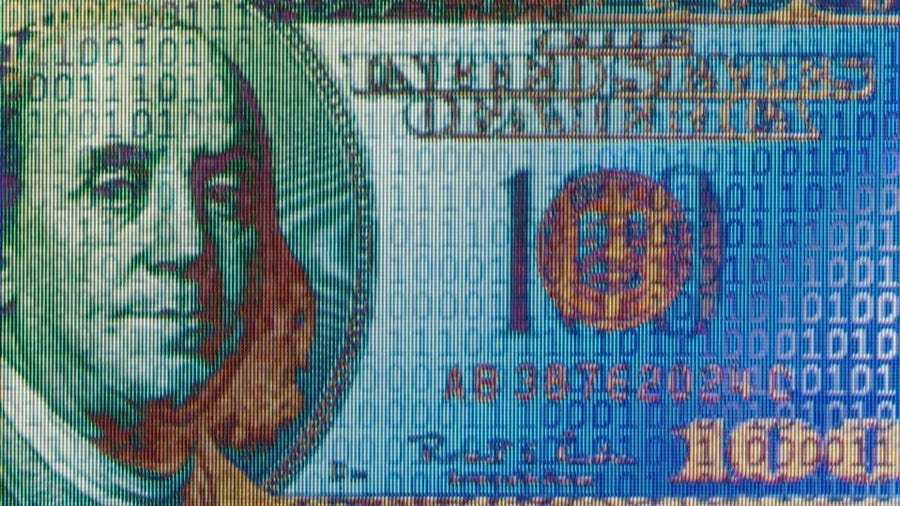It’s my biggest fear.
Worse than heights. Worse than snakes.
The fear that I live with every day is that US government officials, including most members of Congress, will feel that a Central Bank digital coin (CBDC) is an acceptable substitute for Bitcoin. Really.
“Hey, look at us, Americans! We’re hip to the new technology. We’re going to give you digital money. You don’t need that risky Bitcoin!”
- Treasury Dept. official, in 2023.
CBDCs are not Bitcoin. As John Bender said in The Breakfast Club, “Not even close, Bud!”
If you’ve been reading this newsletter, or many others, for a while, you know why Bitcoin is different. Why it can’t be duplicated. You also know the many dangers of the CBDC.
Mainly, a digital coin issued by a central bank is just fiat money in a different form.
Lipstick on a pig.
Fiat money, that can be printed into infinity. No fixed supply. Inflation forever. Boy, that sounds familiar.
Fiat digital money, that can be controlled by a central authority. Think, surveillance.
Fiat digital money, that can be taxed at will, confiscated at will.
Fiat digital money, with a central point of control and a central point of failure. Think, hacking.
A recent article by Dan Jeffries, published on Yahoo Finance, called The Automatic Tax Man Cometh, lays out a scenario whereby every transaction involving a CBDC could be automatically taxed at the source. Immediately. Involuntarily. It’s a scary thought. You receive money from someone, it’s taxed. Without regard to your costs, deductions, or expenses.
The reasons above are why Anthony Pompliano titled his Tuesday newsletter: Central Bank Digital Currencies Will Be One of the Greatest Violations of Human Rights in History.
“Pomp” opened my eyes with this possibility: Currencies could be inflated or deflated by government at will. Monetary policy, such as money printing, could be executed in several ways, including by geographic areas, by income or wealth levels, by occupation, and more. Your social behaviors could also be rewarded or punished, according to your spending habits. All tracked with the CBDC. Really scary.
Know who’s rolled out a Central Bank Digital Currency?
China. That should open your mind to the possible uses and abuses of CBDCs. Also scary.
The Fed and Congress: Where Do They Stand?
Central Bank Digital Currency Study Act of 2021: Almost a year ago, Representatives Bill Foster (IL) and French Hill (AR) introduced the Central Bank Digital Study Act. This bipartisan bill directs the Federal reserve to conduct a study and to issue a report on CBDCs in cooperation with other federal agencies. The goal of the study was to examine a potential CBDC’s impact on businesses, consumers, and on the economy in general.
It seems even members of Congress are waking up to the fact that even central banks need to adopt these innovative technologies to keep up with the evolution of money itself. Said Foster, “The United States is playing catch-up to the rest of the world when it comes to digital currency.”
A report was issued recently, listing pros and cons of adopting a CBDC, but it refused to ultimately take a stance and instead punted the issue to Congress.
Some Pushback Against CBDCs
Just last month, Congressman Tom Emmer (MN) introduced a bill in Congress that would prohibit the Federal Reserve from issuing a CBDC directly to individuals. In response to China’s issuance of a CBDC that is completely void of any privacy protections, Emmer seeks to prevent having the Fed become a retail banking operation, tracking transactions and collecting personal information.
While stating that such a coin could be used as a surveillance tool, Emmer also points out one important weakness of a Central Bank coin. Since it would be totally centralized, it would have a central point of control, and as such, a central point of failure. A hacker’s dream. And that is the second major difference between a CBDC and Bitcoin. Emmer states that a Fed CBDC must be “open, permissionless and private.” Sound familiar?
A US Digital Currency Could Be Years Away
CBDC fans saw the Fed report as a key development in the push to develop a digital coin. Many lawmakers, however, are divided on this issue, and a great number of members are not even educated enough at this point to take a stand. I believe, as do most technology analysts, that a central bank digital currency in the US is still several years away. Still, even the study of a digital coin is a scary thought, the thought that Congress will promote a centralized coin over a better, decentralized option like Bitcoin.
Does Technology Always Bring Utopia?
Jeffries, in his Yahoo Finance article, talks of how new technology can change the world. He also talks about how it can result in change, but not always in the way we expect. He titled the section, Utopia Lost. He compares digital currency innovations to the early days of the internet, where the innovators wanted a revolution of free information, breaking down authoritarian regimes. Governments has figured out, however, how to employ censorship and other measures to keep control of information, to a certain degree.
In Jeffries’ words, “Authoritarian regimes are doing just fine.”
Issue No. 45, February 25, 2022
Rick Mulvey is a CPA, forensic accountant and crypto consultant. He writes about all things Bitcoin, and yells at the Yankees and Giants. He also runs marathons and makes wine, neither professionally.
Follow on Twitter! The Bitcoin Files Newsletter






"a scenario whereby every transaction involving a CBDC could be automatically taxed at the source. Immediately. Involuntarily. It’s a scary thought" Rick, I expect the same will happen with Bitcoin. If that seems unlikely think about this. Bitcoin mining is already centralized. Just four Western nations already control the majority (54%) of the hash rate. (US= 35.5%, Canada = 9.5%, Germany and Ireland each 4.5%) Western nations will coordinate regulation of the miners. Will require that miners only confirm transactions from regulated exchanges. Every large mining company and institution will comply with govt regulations. The majority of the mining hash rate will only confirm transactions from govt. approved exchanges. Exchanges will be required to ID, Tax and freeze accounts as directed by govt. Those who don't like it will fork to a much smaller black market version of Bitcoin. Regulated bitcoin will loose its unconfiscatability but maintain its scarcity modified by stringent taxations. Transactions on the unregulated Bitcoin fork will be outlawed and subject to siezure. "Its a scary thought." https://medium.com/coinmonks/the-bitcoin-network-is-so-big-there-is-not-enough-hash-power-in-the-world-to-successfully-attack-c69af62c629b